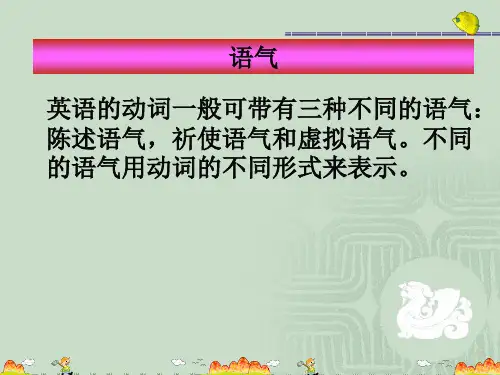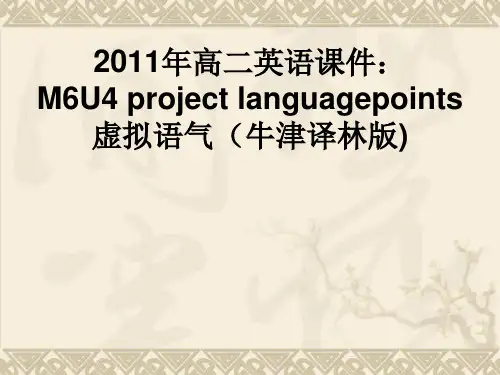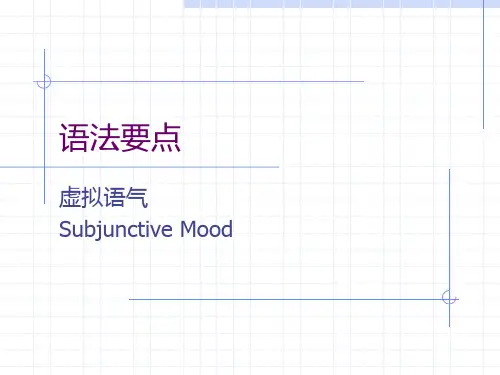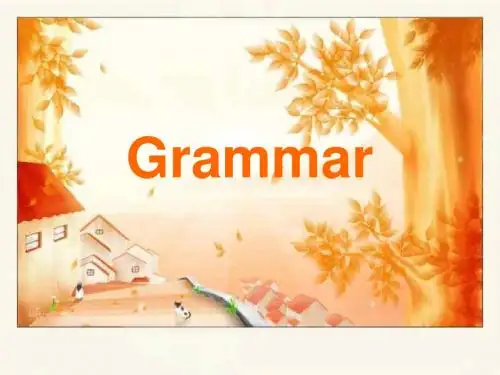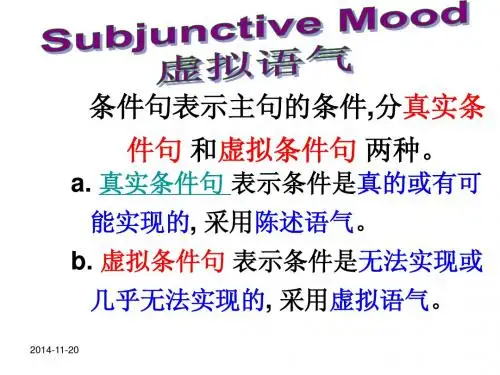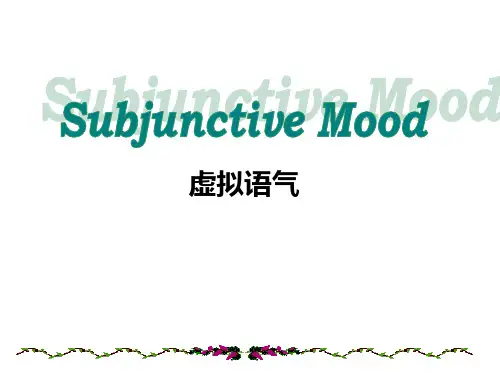在主语从句中,谓语动词可以用虚拟语气表示惊 奇,不相信,惋惜,理应如此等主观的情感,其谓 语动词用(should) +动词原形。 1.It is important that we (should) clean the room every day. (necessary, natural, strange, etc. ) 2.It is a pity that you (should) be so careless. (a shame, no wonder, etc.) 3.It is suggested that Miss Liu (should) give a performance at the party.( decided, ordered, requested, proposed, etc)
I would rather you finished the work tomorrow.
I’d rather you had finished the work yesterday. 在would rather句型中,与过去事实相反,从句 的谓语动词用过去完成时;与现在、将来事实相 反,从句的谓语动词用过去时。
六 有时虚拟语气的条件从句不用if引导,而用but for, without, if only, otherwise等词。 1) But for your help, I couldn’t have made such great progress in English. 2) Without air, we couldn’t live. 以but for, without开头的句子,谓语动词的形式 和if的主句的一致。 3) If only the weather were fine. 以If only开头的句子,谓语动词的形式和if从句的 一致。 4) I had been there by taxi, otherwise I would have missed the train. 主、从句的谓语动词的形式都和if从句相一致。


